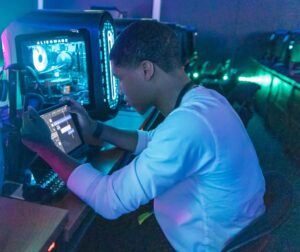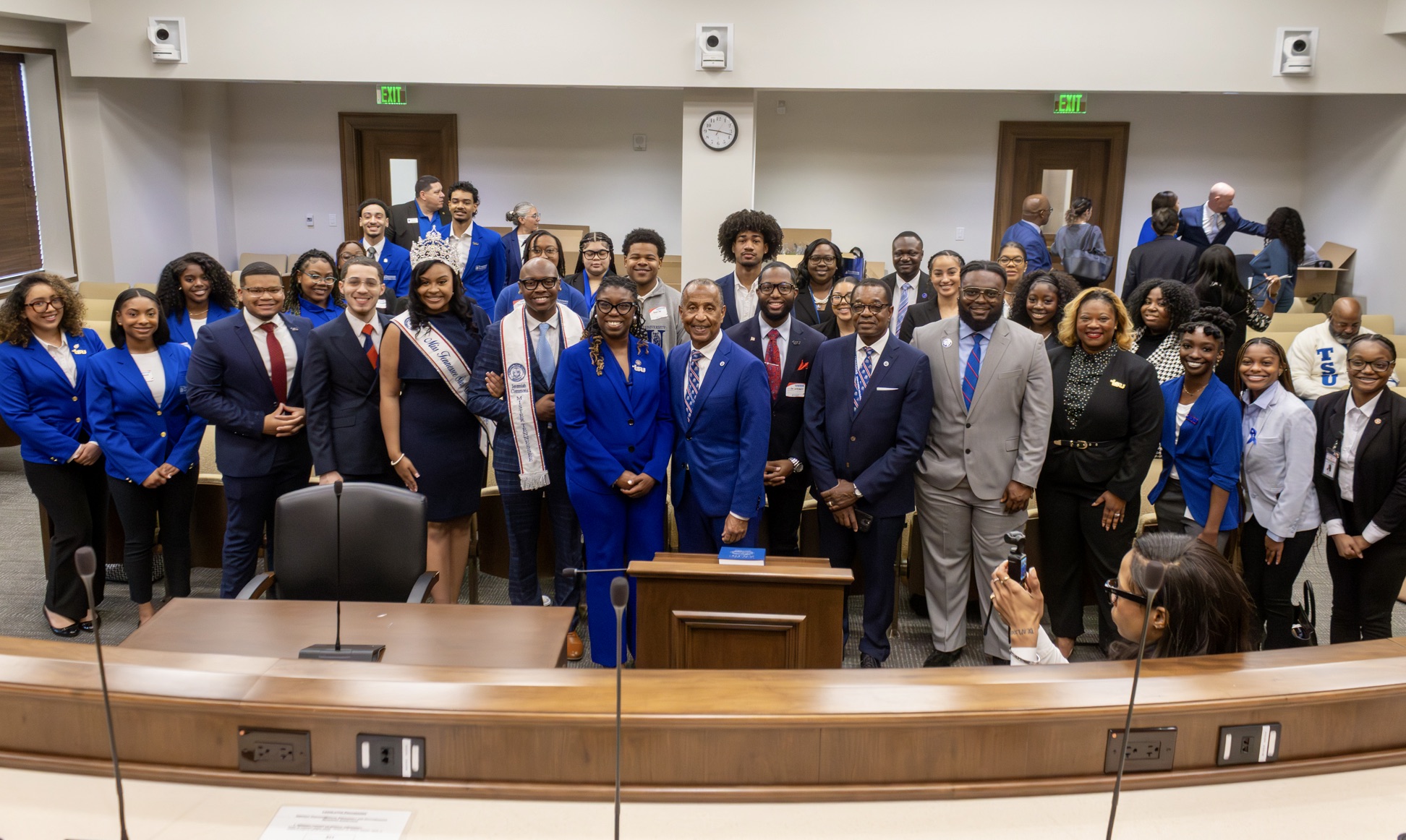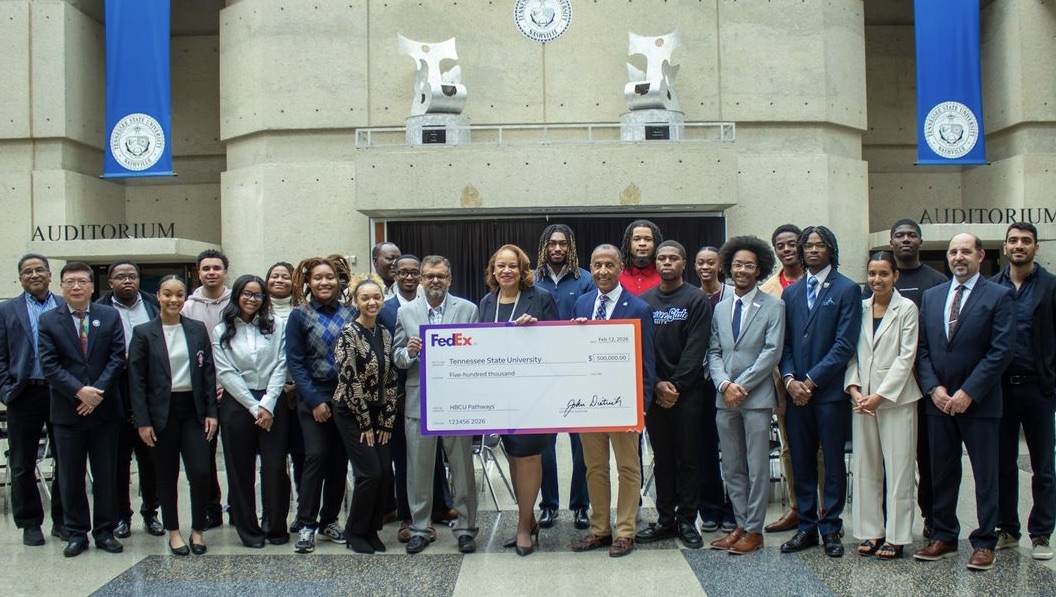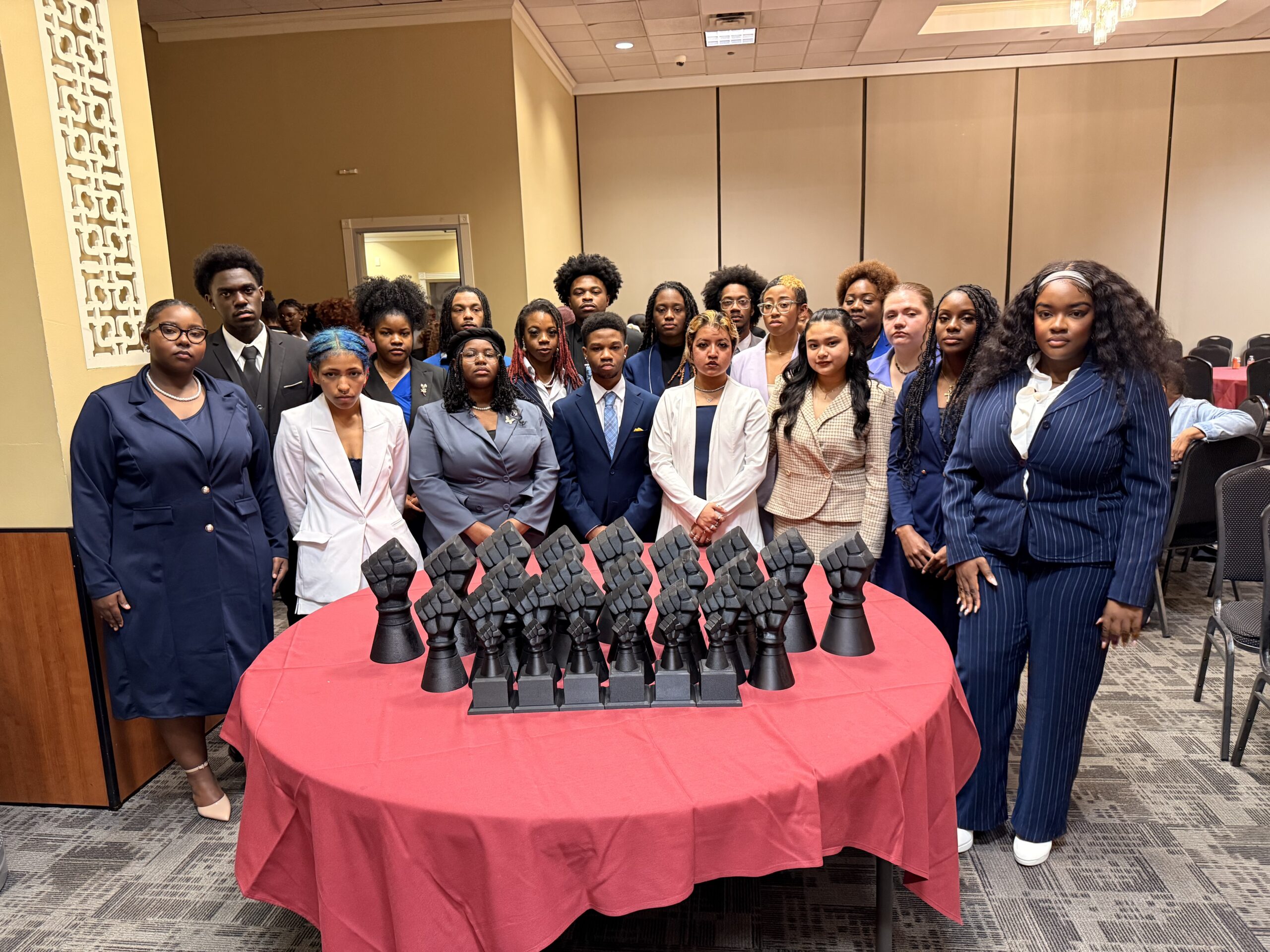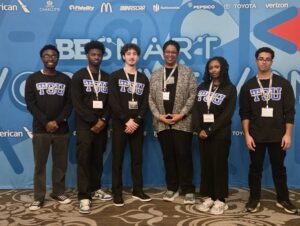
TSU Computer Science Students Shine at National Hackathon with ‘People’s Power’ App
NASHVILLE, Tenn. (TSU News Service) – Five Tennessee State University computer science majors recently impressed judges at a 24-hour national coding challenge with “People’s Power,” an AI-powered civic

